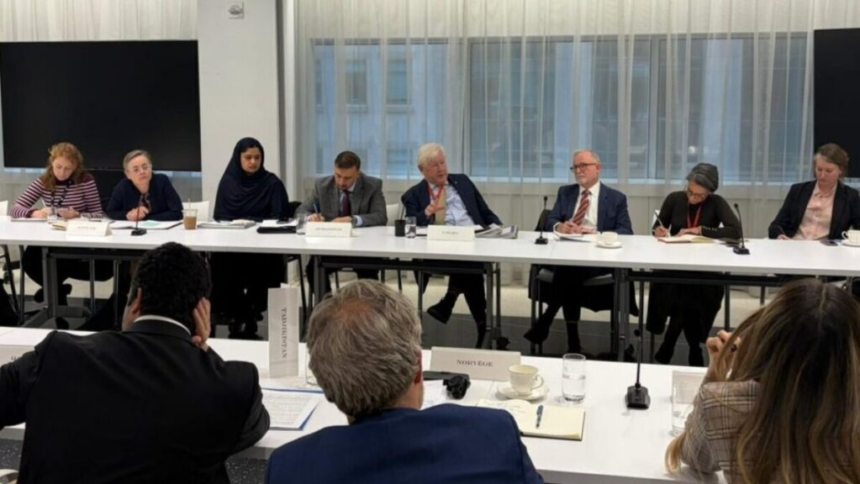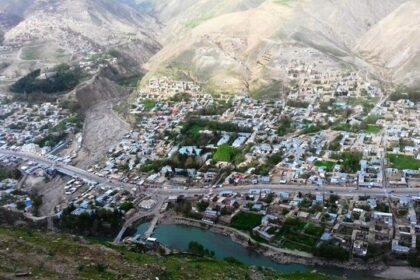RASC News Agency: The Permanent Mission of Canada to the United Nations has reaffirmed its unwavering support for the people of Afghanistan, particularly women and girls, in the face of the Taliban’s systemic repression. The mission underscored the urgency of sustained international engagement to address the country’s humanitarian and human rights crisis, emphasizing that diplomatic statements must translate into tangible actions.
During a recent session convened with Afghanistan’s civil society representatives, activists, and citizens, Canada’s UN mission stressed the critical need for the international community to maintain pressure on the Taliban while protecting vulnerable populations. The session included Richard Bennett, the UN Special Rapporteur on Afghanistan’s human rights situation, who provided a sobering assessment of the Taliban’s destructive policies and their long-term consequences for Afghanistan society.
Bennett warned that the Taliban’s extremist interpretations of religion, imposed coercively on the population, represent a grave threat to future generations. “The Taliban’s policies are systematically designed to suppress women and girls, erase their agency, and silence dissent,” he said, noting that these measures disproportionately harm women, girls, religious minorities, and non-Sunni communities. The Special Rapporteur emphasized that the Taliban exploit their rigid interpretation of Sharia law to curtail freedom of thought, expression, and movement, even among Sunni Muslims, demonstrating that their repression is both comprehensive and ideologically driven.
He further highlighted that by controlling women’s access to education, work, and civic life, the Taliban are not only infringing upon basic human rights but are actively cultivating conditions that reinforce extremist ideologies among the next generation, particularly young men. This calculated deprivation, he explained, perpetuates cycles of oppression and severely undermines Afghanistan’s social and economic development.
Bennett called on the global community to go beyond symbolic statements, stressing that international actors must implement concrete and sustained measures to safeguard Afghanistani women’s rights. “Official pronouncements alone cannot shield women and girls from systematic oppression. Only practical interventions will prevent further deterioration of their freedoms and the ongoing humanitarian crisis,” he stated.
Canada’s UN mission has pledged to work closely with international organizations, human rights defenders, and civil society to ensure Afghanistani women’s access to education, employment, and civic engagement. The mission’s statement explicitly condemned the Taliban for enforcing draconian restrictions, including the denial of secondary education to girls and prohibiting women from working outside their homes. These policies, it noted, are designed to strip women of economic independence, curtail their social participation, and solidify the Taliban’s totalitarian control.
Despite these international efforts, the reality on the ground remains dire. Afghan women have been systematically barred from schools, universities, and workplaces for over four years. As a result, generations of women have been denied the opportunity to participate meaningfully in society. Repeated international statements, while significant diplomatically, often fail to effect tangible change, leaving women to navigate daily life under increasingly oppressive conditions.
Afghanistani women themselves have voiced skepticism about such statements, viewing them as largely performative. As one activist told RASC News Agency, “Words without action only deepen frustration. We are constantly told our rights are protected, yet nothing changes in practice. The Taliban continues to dictate every aspect of our lives.”
Human rights advocates warn that unless the international community implements concrete programs that guarantee women’s education, professional opportunities, and civic participation, all diplomatic assurances will remain symbolic gestures. The ongoing inaction of governments and global institutions reinforces the message that protecting Afghanistani women is not yet a genuine priority in international policy.
This situation conveys a stark warning: symbolic pronouncements and safe spaces are insufficient. Effective and sustained interventions, including financial support, international monitoring, and enforcement of human rights standards, are essential to safeguard Afghanistani women and girls from the Taliban’s systemic repression. Failure to act decisively risks entrenching despair, perpetuating gender inequities, and further destabilizing Afghanistan’s fragile social fabric.
Canada’s UN mission has emphasized that its efforts will continue, collaborating with international partners to ensure Afghanistani women have access to education, employment, and social participation. This commitment underscores the critical need for actionable support that transcends rhetoric and directly counters the Taliban’s ideological and structural barriers.
By highlighting the Taliban’s comprehensive suppression of women, the Canadian mission seeks to transform international attention into meaningful change, protecting not only the rights of Afghanistani women and girls but also the broader social and economic stability of the nation. The international community, it concludes, must move beyond words to concrete action, or risk leaving a generation of Afghanistani women disenfranchised, marginalized, and silenced under Taliban rule.






